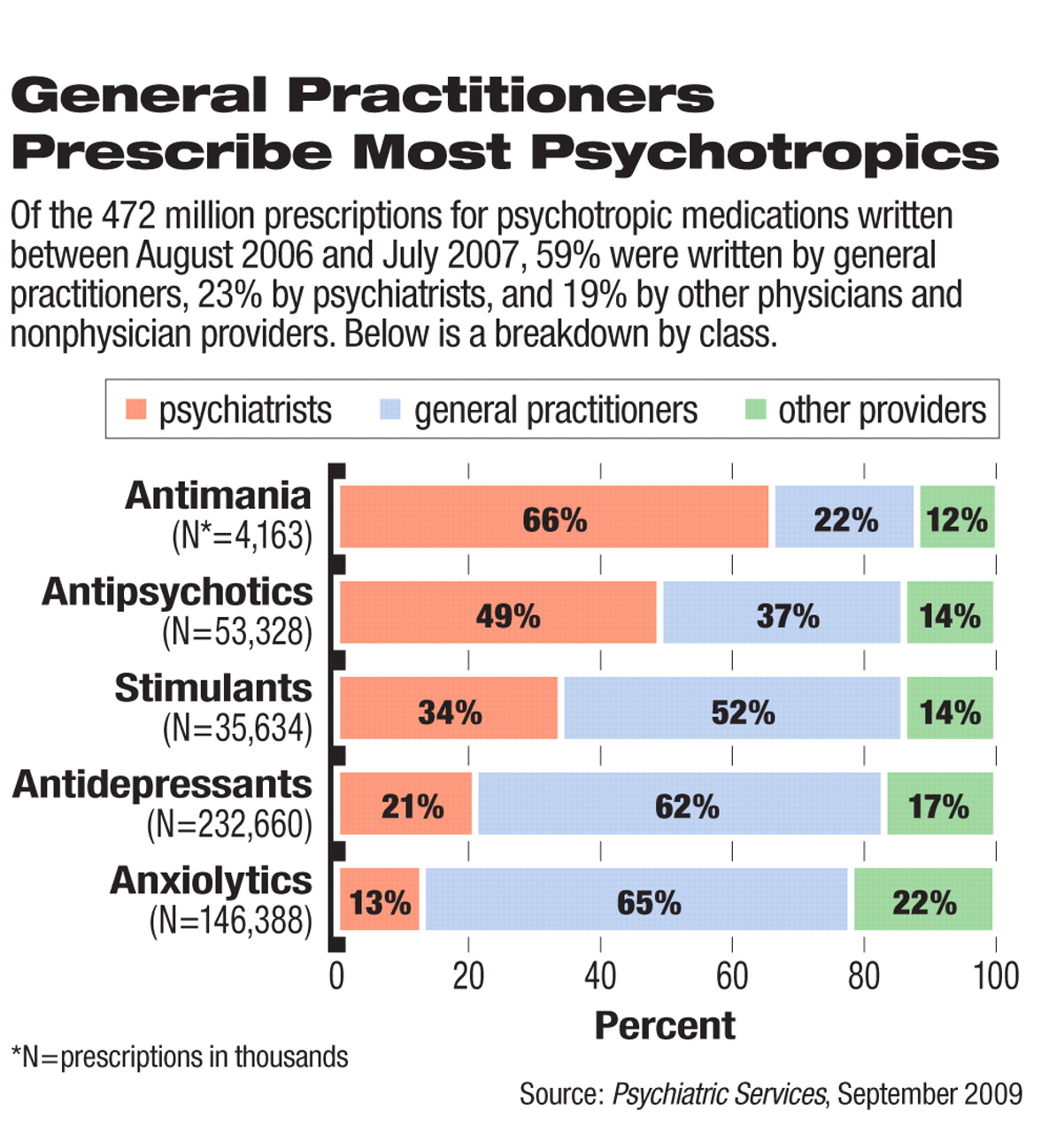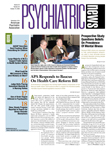General practitioners prescribed most of the antidepressants, anxiolytics, and stimulants during a 12-month period between August 2006 and July 2007.
Also, they prescribed a sizeable percentage of antipsychotics and antimania drugs, according to a report in the September Psychiatric Services. The authors were Tami Mark, Ph.D., M.B.A., and Katherine Levit of Thompson Reuters, and Jeffrey Buck of the Center for Mental Health Services in the Substance Abuse and Mental Health Services Administration.
Of the 472 million prescriptions for psychotropic medications written between August 2006 and July 2007, 59 percent were written by general practitioners, 23 percent by psychiatrists, and 19 percent by other physicians and nonphysician clinicians (see chart). General practitioners wrote prescriptions for 65 percent of the anxiolytics in the sample, for 62 percent of the antidepressants, for 52 percent of the stimulants, for 37 percent of the antipsychotics, and for 22 percent of the antimania medications.
Conversely, psychiatrists and other addiction specialists wrote prescriptions for 66 percent of the antimania medications, for 49 percent of the antipsychotics, for 34 percent of the stimulants, for 21 percent of the antidepressants, and for 13 percent of the anxiolytics.
The researchers used data from August 2006 to July 2007 from the National Prescription Audit Plus database of IMS, a company that collects a variety of health care data.
IMS collects transaction information each month from approximately 36,000 retail pharmacies, representing about 70 percent of all retail pharmacies in the United States. Using a separate sample of retail pharmacy transactions that includes the physician's Drug Enforcement Administration number, IMS assigns physician specialty information to obtain an estimate of the total number of prescriptions filled in retail pharmacies by medical specialty.
“Prescribing of psychotropic medications by nonpsychiatrists improves access to treatment,” the authors stated. “However, concerns remain about whether patients treated in the general medical setting are receiving treatment concordant with evidence-based guidelines, psychotherapy, adequate medication monitoring, and appropriate intensity of treatment. In 2004–2005, about two-thirds of primary care physicians reported that they were unable to obtain outpatient mental health services for patients. Given the large role of primary care providers in psychotropic drug prescribing, additional efforts may be needed to enhance the quality of psychiatric treatment in general practice settings across a range of psychiatric conditions.”

